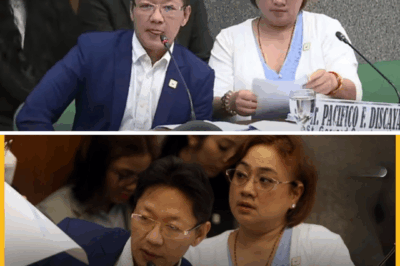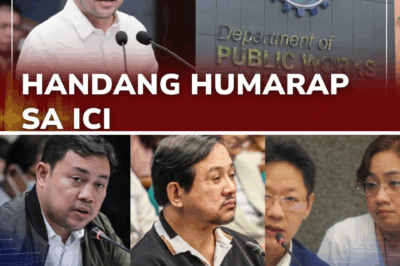
When Aid Becomes Black Market Profit: The Tondo Scandal
In a revelation that has ignited national outrage, the Philippine National Police’s Criminal Investigation and Detection Group (CIDG) executed a successful entrapment operation in Tondo, Manila, uncovering a vast cache of stolen government relief supplies. The scandal is not merely about theft; it is about the ultimate betrayal of public trust—the alleged diversion and illegal sale of critical aid meant for the nation’s most vulnerable disaster victims.
The CIDG raid exposed a criminal enterprise built on human suffering. Inside a nondescript Tondo warehouse, authorities discovered an estimated ₱15 million worth of goods clearly marked with the official seal of the Department of Social Welfare and Development (DSWD) and the damning label: “Not for Sale.” This inventory, primarily consisting of essential DSWD Family Clothing Kits (including slippers, t-shirts, and shorts for adults and children), was being systematically sold on the black market at a massive profit.
The shocking discovery underscores a chilling reality: even as successive typhoons, earthquakes, and other calamities strike the Philippines, leaving millions destitute, a cynical network is allegedly profiting from the misery. The illegal operation was meticulously exposed by the CIDG, whose agents posed as buyers, documenting the transaction that confirmed the large-scale nature of the scheme. The success of the operation now shifts the focus from the crime itself to the question of systemic integrity: How did millions of pesos worth of donated and government-funded survival items end up in a private sales operation instead of the hands of those who needed them most?
The Anatomy of the Diversion: Cash, Kits, and a Former Supplier
The operation reached its peak when investigators captured video evidence of an individual counting stacks of cash—the supposed proceeds from the illegal sale of the relief goods. This footage provided the concrete proof needed to execute the arrests.
The suspect apprehended by the CIDG was identified as a former DSWD supplier whose ties to the agency date back to 2020. This detail is crucial. It suggests the diversion of these “Not for Sale” goods was not a random act of petty theft but a calculated, systemic leak enabled by individuals familiar with the DSWD’s logistics, inventory, and supply chain vulnerabilities. The items seized, estimated to be worth ₱5 million in direct inventory value but part of a larger ₱15.5 million sales operation tracked by police, confirm that this was an industrial-scale operation.
The items—basic necessities for survival—were being repackaged and sold to private individuals. Each DSWD Family Clothing Kit, designed to provide immediate relief and dignity to families rendered homeless, was being sold individually, turning government humanitarian funding into pure criminal profit. The case highlights a serious security lapse within the disaster relief mechanism, where the integrity of the supply chain—from procurement to final distribution—was compromised by individuals allegedly prioritizing greed over the nation’s most sacred duty: caring for the afflicted.
Profiting from Peril: The Moral and Legal Reckoning
The Tondo relief goods scandal is not just a violation of administrative trust; it is a profound moral outrage that strikes at the heart of the Filipino bayanihan (community spirit). The items were supposed to be given freely to families who have lost everything. Selling them is, in the public’s eyes, an act of unconscionable exploitation.
Legally, the suspect faces severe charges that reflect the gravity of the crime. These include charges related to the illegal sale of relief goods, which carries heavy penalties, and crucially, violations of the Philippine Disaster Risk Reduction and Management Act (RA 10121). This Act includes provisions specifically targeting individuals who exploit disaster situations for profit, recognizing that such acts are not merely theft but a threat to national security and public welfare. The charges may also include illegal use of government insignia, as the DSWD logo and “Not for Sale” markings were being used, further complicating the crime.
For a nation that frequently faces the destructive power of typhoons and earthquakes, the integrity of the DSWD relief supply is literally a matter of life and death. The alleged actions of the former supplier directly undermine the government’s entire disaster response capability. Every kit sold illegally is one less kit available when the next calamity strikes, potentially increasing the death toll or extending the suffering of genuine victims. The prosecution in this case must be swift and exemplary to send an unequivocal message: profiting from a national disaster will not be tolerated.
DSWD’s Disavowal and the Imperative for Reform
In the wake of the highly publicized raid, the DSWD swiftly issued a statement condemning the misuse of its logo and denying any involvement of its current personnel with the Tondo warehouse operation. The agency vowed full cooperation with the CIDG to determine how their official relief items were diverted into the black market supply chain.
While the DSWD’s quick disavowal is expected, the case highlights an immediate and urgent need for structural reform within the agency’s logistics division. The presence of such a large, valuable cache of highly identifiable relief goods outside the official distribution network suggests deep vulnerabilities in inventory tracking, storage, and accountability protocols.
The investigation must extend beyond the arrested former supplier. It must examine the entire supply chain, scrutinizing:
-
Procurement Audits: Were the items properly accounted for upon purchase?
Storage Security: How did the items leave the official DSWD or partner warehouses?
Delivery Verification: Were final delivery receipts faked or manipulated?
The Tondo scandal is a clear sign that the government must adopt state-of-the-art inventory systems—perhaps leveraging digital tracking or blockchain technology—to ensure every single relief kit reaches its intended recipient.
Conclusion: Zero Tolerance for the Corrupt
The discovery of the ₱15 million in illegally stored and sold DSWD relief items is a scathing indictment of the corrosive effects of corruption on humanitarian aid. It serves as a painful reminder that even the noblest efforts to help the poor and afflicted can be exploited by those lacking moral compass.
The CIDG’s successful operation provides the government with a crucial opportunity to restore public confidence in disaster management. Justice demands that the full force of the law be brought down upon the individuals who sought to capitalize on national misfortune. The Filipino people deserve assurance that when tragedy strikes, the aid intended for them is protected by an ironclad system of integrity. The Tondo scandal must mark the end of profiting from peril and the beginning of zero tolerance for corruption in disaster relief.
News
The P180 Billion Swindle: How a Single Family’s Alleged Corruption Drained Flood Control Funds
The Day the AMLC Hammer Dropped: 164 Accounts Frozen In a dramatic move that sent shockwaves through the Philippines’ political…
CRISIS OF LIFE: Inside the ICI Hearings Set to Expose Systemic Failures That Have Left Millions of Filipinos Drowning in Floods
INTRODUCTION: THE NEVER-ENDING BATTLE WITH THE WATER The annual rainy season in the Philippines is not just a climatic phenomenon;…
The Decisive Blow: The Shocking Revelation of the ‘Pioneer’ Whose Sacrifice Is Key to a Philippine Snap Election
The Analyst’s Prophecy: Who Must Make the Ultimate Political Sacrifice? The political theatre in the Philippines is rarely short on…
NoraCoy, Beyond the Heart: A Deep Dive into Elwood Perez’s Visionary Reinterpretation of Lollipops & Roses at Burong Talangka
Introduction When we say a film “transcends romantic love,” what do we really mean? In NoraCoy, the collaboration of Nora…
End of content
No more pages to load







